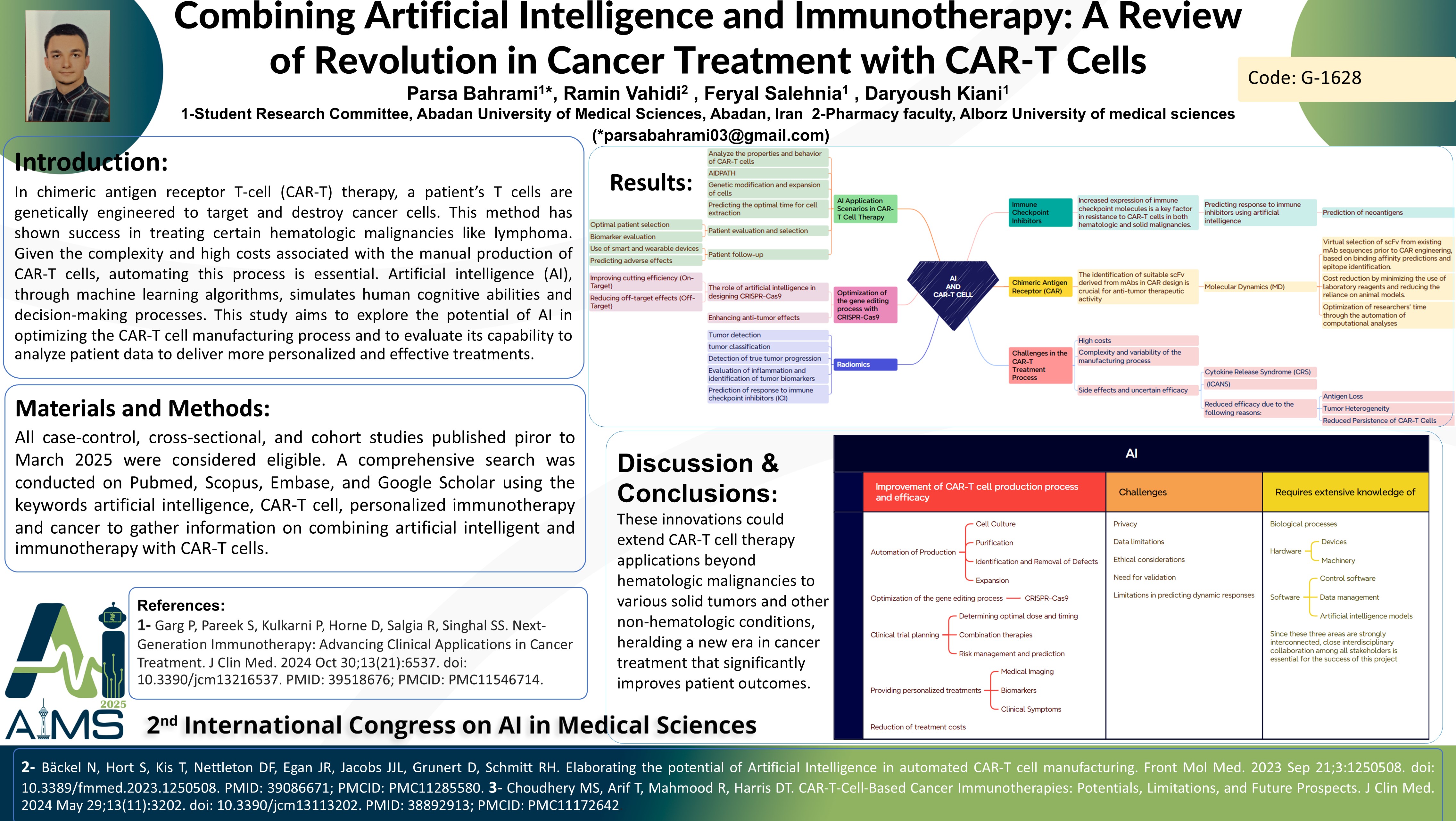ترکیب هوش مصنوعی و ایمنیدرمانی: مروری بر انقلاب در درمان سرطان با سلولهای CAR-T
کد: G-1628
نویسندگان: Parsa Bahrami *, Feryal Salehnia, Daryoush Kiani, Ramin Vahidi ℗
زمان بندی: زمان بندی نشده!
برچسب: تشخیص و درمان سرطان
دانلود: دانلود پوستر
خلاصه مقاله:
خلاصه مقاله
Background and aims: In chimeric antigen receptor T-cell (CAR-T) therapy, a patient’s T cells are genetically engineered to target and destroy cancer cells. This method has shown success in treating certain hematologic malignancies like lymphoma. Given the complexity and high costs associated with the manual production of CAR-T cells, automating this process is essential. Artificial intelligence (AI), through machine learning algorithms, simulates human cognitive abilities and decision-making processes. This study aims to explore the potential of AI in optimizing the CAR-T cell manufacturing process and to evaluate its capability to analyze patient data to deliver more personalized and effective treatments. Method: All case-control, cross-sectional, and cohort studies published piror to March 2025 were considered eligible. A comprehensive search was conducted on Pubmed, Scopus, Embase, and Google Scholar using the keywords artificial intelligence, CAR-T cell, personalized immunotherapy and cancer to gather information on combining artificial intelligent and immunotherapy with CAR-T cells. Results: CAR-T cell therapy faces several challenges, including high costs, complex manufacturing processes, side effects such as cytokine release syndrome (CRS) and neurotoxicity, reduced efficacy, and inadequate infrastructure. In this context, machine learning analysis has been used to improve treatment safety, reduce off-target effects, and lower costs. Artificial intelligence reduces treatment resistance by predicting responses to the use of immune checkpoint inhibitors (ICI) in combination with CAR-T cells and identifying the best CAR-T therapy combinations with chemotherapy. Additionally, AI is used to optimize the selection of monoclonal antibodies in CAR design, improve gene-editing efficiency, and minimize off-target effects in the CRISPR/Cas9 system for inserting the CAR gene into T cells. Conclusion: Artificial intelligence plays a crucial role in improving the production process, enhancing efficacy, and reducing the costs of CAR-T cell therapy by automating manufacturing, optimizing gene editing, and delivering personalized treatments. With further research and the resolution of challenges such as data privacy, decision validation, and data limitations, these advancements could extend the scope of CAR-T therapy to solid tumors and non-hematologic diseases. This progress holds the promise of ushering in a new era of cancer treatment, significantly improving patient outcomes.
کلمات کلیدی
Artificial Intelligence, CAR-T Cell, Immunotherapy, Cancer
